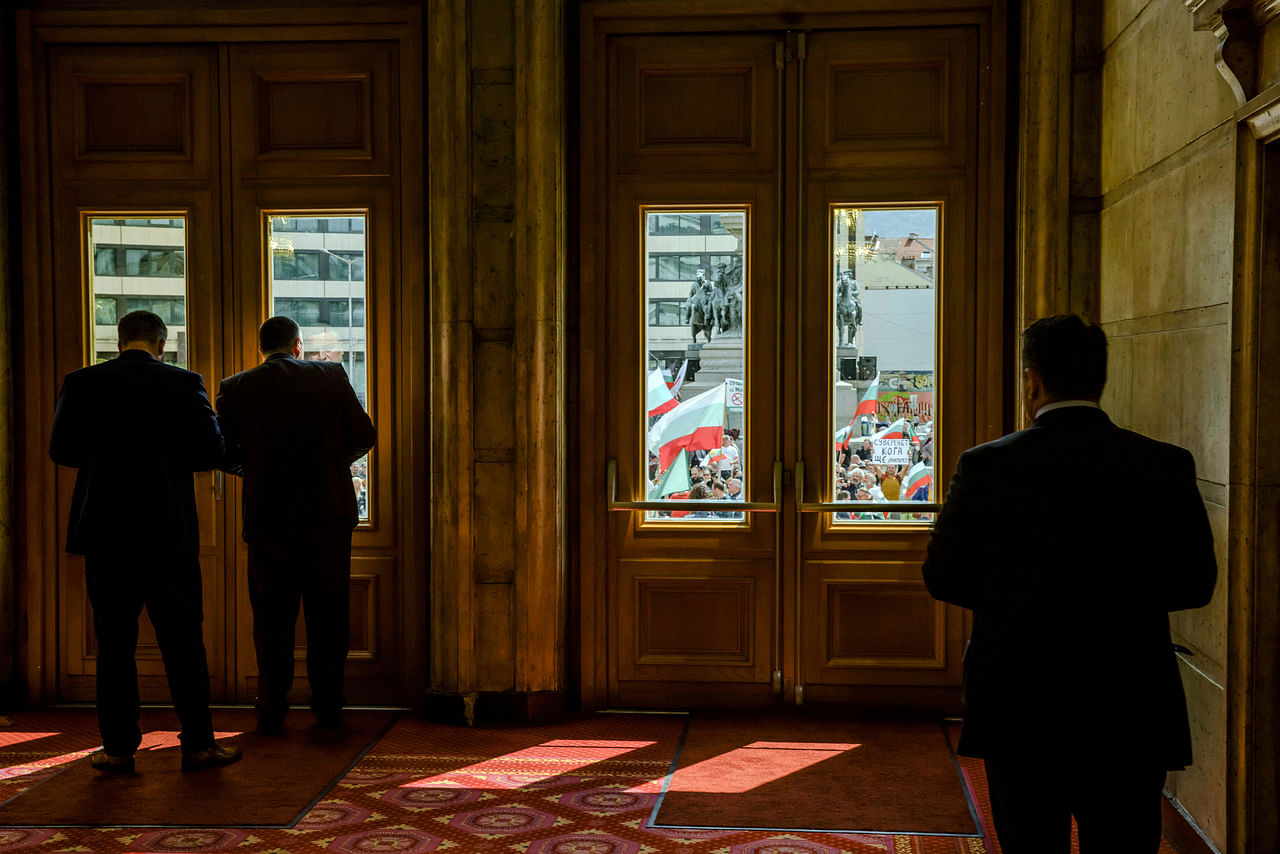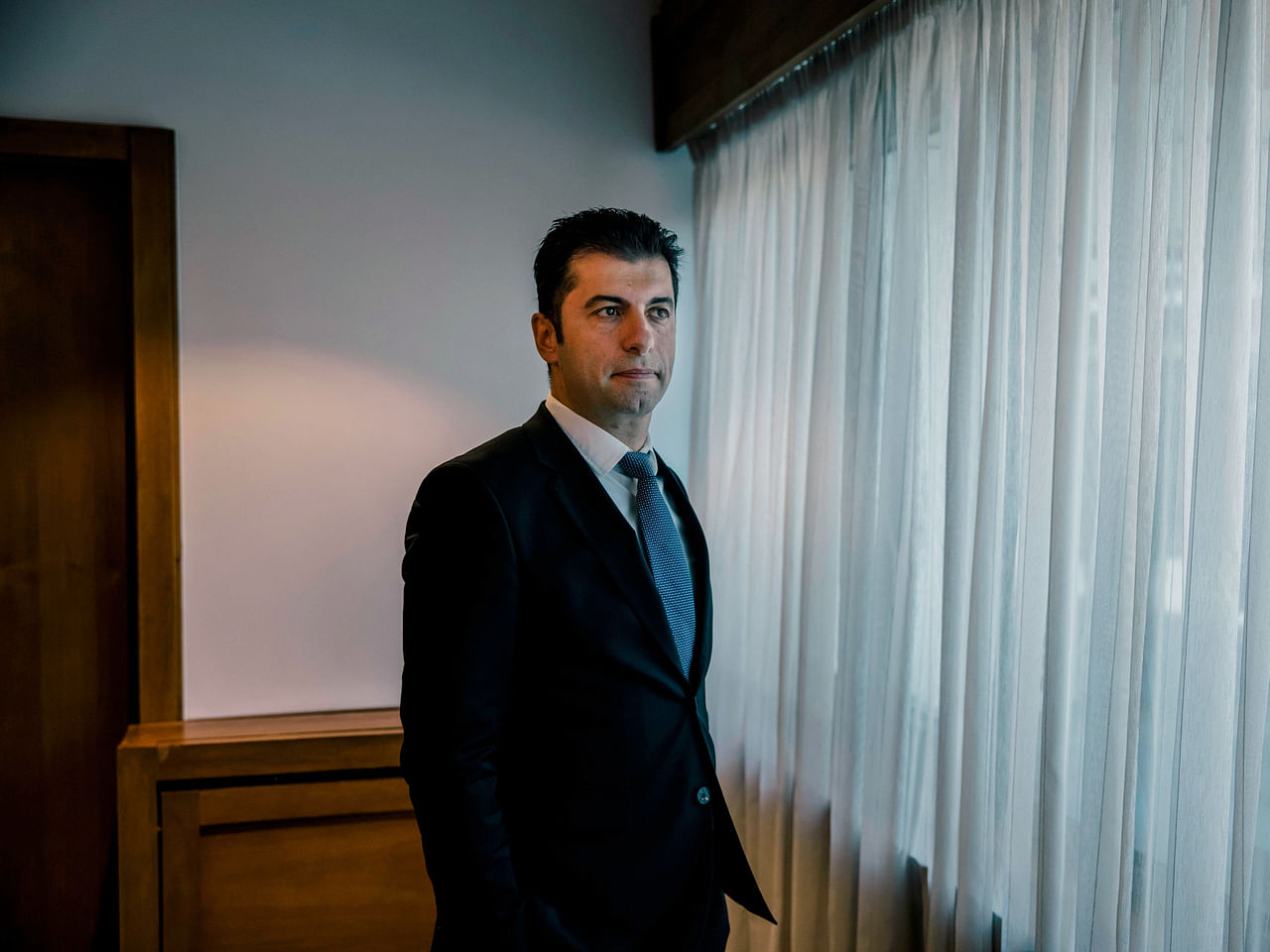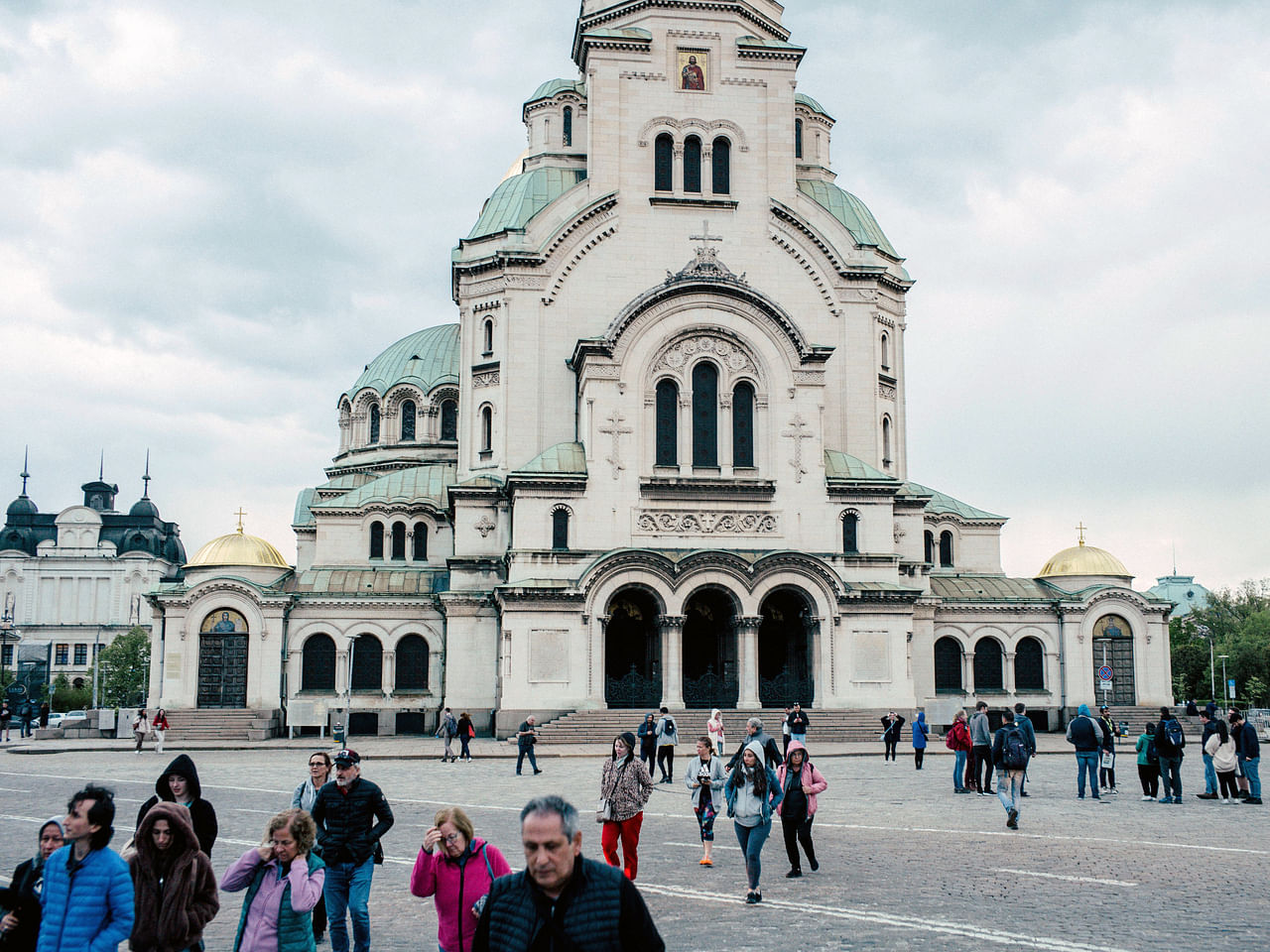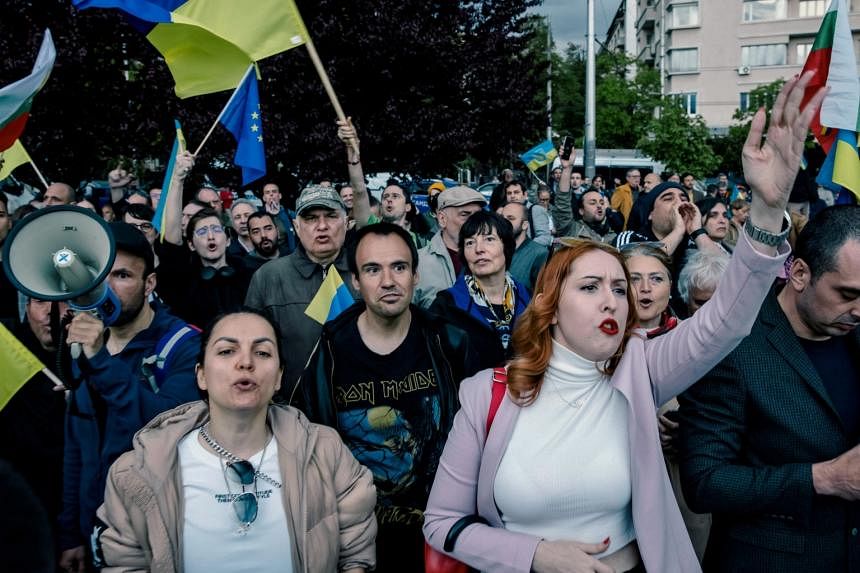SHIPKA, Bulgaria (NYTIMES) - A week after Russia invaded Ukraine, Moscow's ambassador to Bulgaria climbed a snowy mountain pass to honour czarist-era Russian soldiers who died there fighting for Bulgarian independence in the 19th century.
Present-day concerns, however, quickly eclipsed the effort to remind Bulgaria of the debt it owed Russia. That same day, Bulgaria expelled two of the ambassador's underlings for espionage and announced the arrest of a senior military officer on charges of spying for Russia.
In the weeks since, Bulgaria, a country that Moscow long counted as its most ardent and reliable friend in Europe, has joined fellow members of the European Union in imposing ever tougher economic sanctions on Russia, offered to repair broken military helicopters and tanks for Ukraine, and expelled yet more Russian diplomats.
"Traditionally, Russia has always had a big influence here, but we have been a big surprise to them," Prime Minister Kiril Petkov said last week in Sofia, the Bulgarian capital. "They don't understand what happened," he added.
The rapid souring of relations with Bulgaria, a poor but symbolically important country because of its historically close ties to Russia, underscores how far off-script the invasion of Ukraine ordered by President Vladimir Putin has veered, and not only on the battlefield.
Russia, furious at what it sees as its wayward friend's insolence, last month abruptly halted supplies of natural gas to Bulgaria by Gazprom, making its erstwhile Balkan ally the first country along with Poland targeted by Moscow's energy weapon.
At the same time, Petkov said, Moscow launched cyberattacks, assaulting the server of Bulgaria's state energy company and crippling pension payments by its postal service. "We are under severe attack at the moment," he said, describing this as a clear "attempt to derail our government" by stoking domestic unrest.
"They are trying to make an example of us," Petkov said, describing Russia's energy squeeze on his country as aimed at creating a situation in which "energy prices will go through the roof and our government will fall".
Whether Petkov's already fragile coalition government, formed after inconclusive elections in November, survives now depends to a large extent on its ability to patch together alternative sources of energy with help from the European Union, which Bulgaria joined in 2007, and the United States.
Petkov this week visited Washington, where Vice President Kamala Harris pledged US "solidarity in the face of Russia's latest attempt to use energy as a weapon". Assen Vassilev, Bulgaria's finance minister and deputy prime minister, insisted that Bulgaria was already well on its way to securing substitute supplies of gas by pipeline from Azerbaijan and through deliveries by sea of liquefied natural gas to terminals in neighbouring Greece for transport north to Bulgaria.
Already clear from Russia's rift with Bulgaria is that its faltering progress on the battlefield in Ukraine has been accompanied by often self-inflicted setbacks on the diplomatic front.
Moscow has kept China onside and rallied support in Africa and parts of Latin America, but elsewhere it has displayed a striking capacity to lose friends and alienate people.
Russia's foreign minister, Sergei Lavrov, for example, recently infuriated many people in Israel, a country that had mostly sat on the fence over the war in Ukraine, by claiming that Jews were "the biggest anti-Semites" and that Hitler had Jewish origins. Putin later apologised to Israel for the remarks.

The Russian ambassador in Sofia, Eleonora Mitrofanova, scored another own-goal by describing Bulgaria as America's "bedpan", an insult her embassy later blamed on a faulty translation.
Petkov, the Bulgarian prime minister, said he had summoned the ambassador to protest her remark, telling her that "there are lots of good dictionaries around", and received an apology.
He added that he was still unhappy that Moscow's envoy was "acting not like a diplomat but a propaganda machine".

Bulgaria in March recalled its ambassador from Moscow in response to what it described as "undiplomatic, sharp, and rude" statements by Mitrofanova. It has let the Russian ambassador stay in Sofia but more of her diplomats will soon be ordered home.
"Now is the time to take a strong stand against Russian spies and operatives," Petkov said. "Now is the time to clean up."
Poland, while never a friend of Moscow like Bulgaria had been, has also been taken aback by Russia's disregard for public sentiment. Russia's embassy in Warsaw, a city awash with Ukrainian flags and abusive billboards targeting Putin, last week called on residents of the Polish capital to join Russian diplomats in "Victory Day" events on May 9 celebrating the 1945 defeat of Nazi Germany, a Russian holiday that Putin has turned into a festival of nationalist bombast.
On Saturday (May 7), after a public outcry over what many in Poland saw as a crude effort to hijack memories of World War II, the embassy cancelled its plans for joint public events with Poles. In a statement, the embassy also expressed regret over Poland's ingratitude to Moscow for its role in defeating the Nazis, "thanks to which the Polish state exists today!" When the Russian ambassador showed up at Soviet war memorial in Warsaw on Monday, a Ukrainian activist doused him with a red liquid.
Moscow's embassy in Sofia made an equally unsuccessful attempt to co-opt Russia's past military glory in service of its brutal onslaught against Ukraine. Mitrofanova, the ambassador, infuriated even previously pro-Russian Bulgarians with a claim that Russia's invasion of Ukraine was no different from its czarist-era military intervention against the Ottoman Empire in the Balkans, which helped Bulgaria become an independent nation.
"There were times when Russia liberated Bulgaria, now it's time for Russia to liberate Donetsk and Luhansk," the ambassador, referring to two eastern regions of Ukraine, said in a March speech.

That comparison, said Daniela Koleva, a historian at Sofia University, "caused a wave of indignation" by presenting a one-sided view of history that, like Putin's denigration of Ukraine's history and its right to exist, distorted complicated past events in service of clumsy propaganda.
Koleva said many Bulgarians acknowledged that their country had benefited from Russian help in the 19th century and still felt some gratitude. But, she added, the country also has bitter, more recent memories of Russian attacks on its Black Sea coast during World War I and of Soviet occupation after World War II.
"There is a lot of mythology about Russia," she said, adding that more than four decades of Soviet-imposed communist rule had "systematically erased anything that might put a shadow on Russia or the Soviet Union".
Opinion polls show that sympathy for Russia is still stronger in Bulgaria than elsewhere in Europe. But, according to a survey commissioned by Bulgarian state television in March, more than 60 per cent favour tougher sanctions against Moscow while the approval rating of Putin has sunk by more than half to around 25 per cent since he invaded Ukraine.
"This war is a big nail in the coffin of our enchantment with Russia," said Ruslan Stefanov, programme director for the Centre for the Study of Democracy, a research organisation in Sofia. "They have been very successful in totally turning people off Russia."

